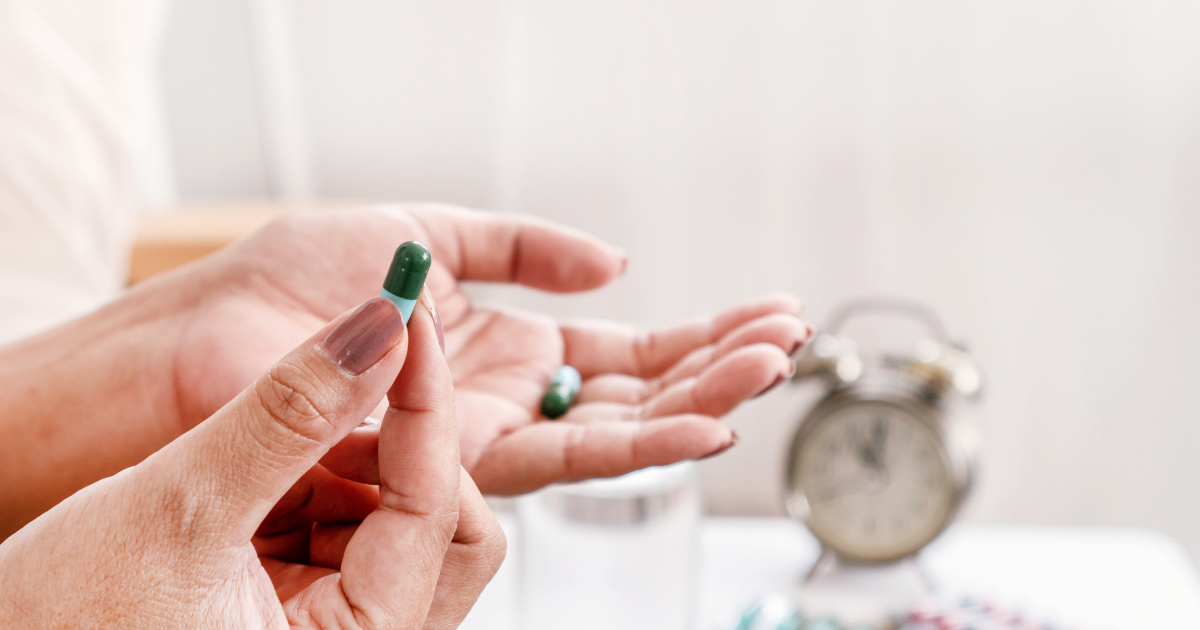The Connection Between Antibiotics and Laser Hair Removal

The Surprising Connection Between Antibiotics and Laser Hair Removal: What You Need to Know
In the realm of beauty and health, laser hair removal has emerged as a popular method for achieving smooth, hair-free skin. But did you know that something as common as taking antibiotics could significantly affect your laser hair removal treatment? Yes, you read that right! The interplay between antibiotics and laser treatments is a subject of interest for both clients and professionals in the beauty industry. Our blog will delve into the essential information you need to know about antibiotics' impact on laser hair removal, ensuring you're well-informed and safe during your journey to silky-smooth skin.
Understanding Laser Hair Removal
Laser hair removal at Aesthetic Allure is a cosmetic procedure that uses concentrated light beams (lasers) to remove unwanted hair. Our lasers target hair follicles, the tiny sacs in our skin from which hair grows. The pigment in the hair absorbs the laser light, which then converts to heat and damages the hair follicle, inhibiting or delaying future hair growth.
Why Inform Your Technician About Antibiotic Use
Antibiotics are powerful medications used to treat bacterial infections, but they come with a lesser-known side effect relevant to those interested in laser hair removal. Certain antibiotics can increase your skin's sensitivity to light, a condition known as photosensitivity. This heightened sensitivity can make your skin more susceptible to the laser's light, potentially leading to adverse reactions such as burns, blisters, or changes in skin pigmentation after a laser treatment. That's why it's crucial to inform our laser hair removal technician if you're taking any antibiotics.
The Impact of Antibiotics on Laser Hair Removal
When planning your laser hair removal sessions, here are key points to consider regarding antibiotics:
Increased Sensitivity
Photosensitivity due to antibiotics can lead to an increased risk of skin irritation and damage during laser treatments. Symptoms of photosensitivity may include redness, rash, or swelling on exposed skin areas.
Timing Is Everything
If you're on antibiotics, it might be advisable to wait until you've completed your medication course and allow an additional period for the drug to clear from your system before undergoing laser hair removal. This waiting period can vary, so consult with your healthcare provider and our laser technicians for personalized advice.
Not All Antibiotics Are Equal
It's worth noting that not all antibiotics cause photosensitivity. However, popular ones such as tetracyclines and fluoroquinolones are more likely to have this effect. Always discuss your current medications with our laser hair removal specialists to assess your risk and plan accordingly.
The Biological Basis of Antibiotics and Photosensitivity
Antibiotics can make your skin more photosensitive through a biological mechanism that involves the absorption of ultraviolet (UV) light by the medication or its metabolites in the skin. This absorption can lead to a photochemical reaction that damages cellular components and increases the production of molecules that cause inflammation and sensitivity in the skin. For example, fluoroquinolones, a class of antibiotics, can absorb UV light, leading to the production of free radicals and oxidative stress, which in turn can harm the skin cells.
Similarly, tetracyclines, another group of antibiotics, can become activated by UV light and damage cell membranes and DNA. This increased vulnerability makes the skin more prone to the adverse effects of laser treatments, which also use light to target hair follicles.
Safety First: Tips for a Successful Laser Hair Removal Experience
Here are a few tips to ensure your laser hair removal experience is both effective and safe:
Full Disclosure: Honesty is the best policy, always inform our technicians about any medications you're taking, including antibiotics.
Professional Guidance: Only undergo laser hair removal under the care of a certified and experienced professional who can adjust the treatment based on your medical history such as our team at Aesthetic Allure.
Patch Test: If there are concerns about how your skin might react, we always provide a complimentary patch test to gauge your skin's response to our lasers.
Follow Aftercare Instructions: Adhere to any aftercare guidelines provided by our technicians to soothe and protect your skin post-treatment.
Final Thoughts
Laser hair removal offers a promising solution for those seeking to reduce unwanted hair, but it's important to navigate this process with awareness and caution, especially when it comes to antibiotics. Understanding the potential for increased skin sensitivity and the importance of timing can help prevent adverse effects and ensure a smoother, more enjoyable journey towards achieving your beauty goals. Always communicate openly with your healthcare providers and our laser technicians to ensure the best outcomes for your skin and overall well-being.
Remember, the key to a successful laser hair removal experience lies in education, communication, and professional care. Armed with the right knowledge, you can look forward to enjoying the benefits of this popular cosmetic procedure safely and effectively with our team at Aesthetic Allure.
*This content is for informational purposes only and is not a substitute for professional medical advice, diagnosis, or treatment. Always consult your healthcare provider before making any health-related decisions.


